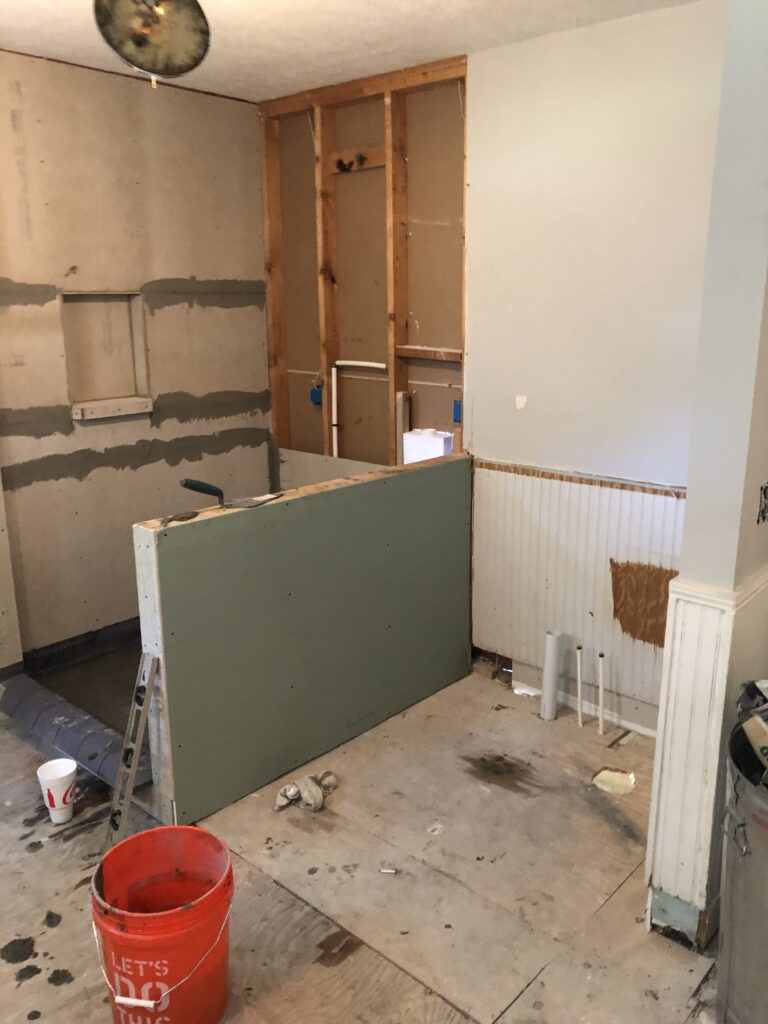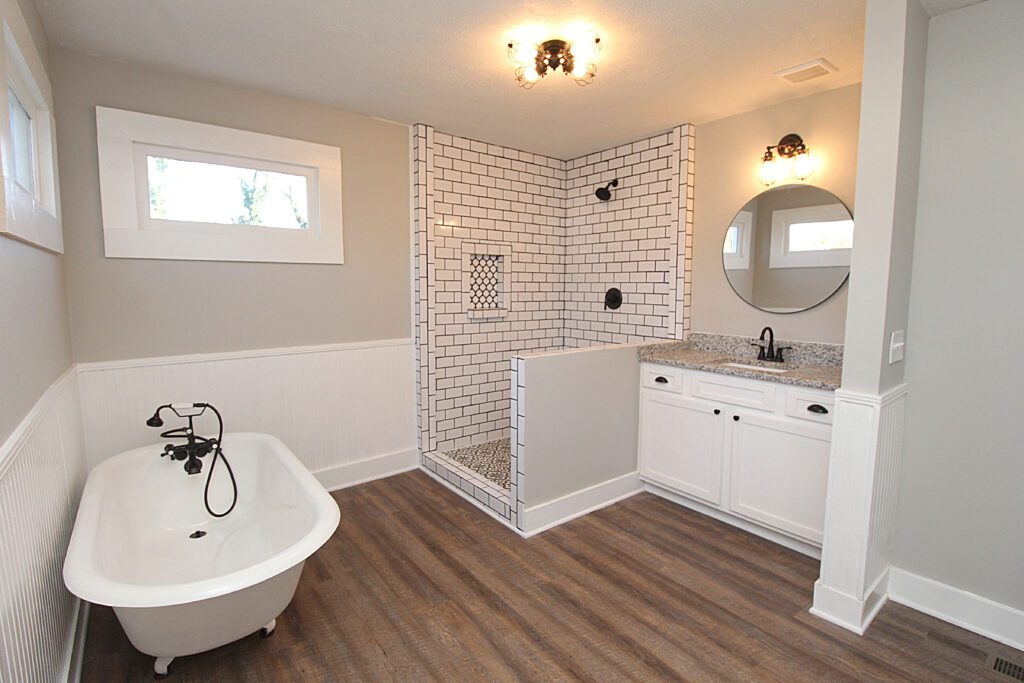
Every homeowner dreams of increasing their home equity, which is the portion of their property that they truly own. It’s an essential part of homeownership and can significantly impact your financial health. Home equity is the difference between your home’s current market value and the remaining balance on your mortgage. Therefore, as your home’s value increases or as you pay down your mortgage, your equity grows. This article will provide ways to improve equity in your home, including renovations, market dynamics, and reducing your mortgage principal.
1. Home Improvements and Renovations To Improve Equity
One of the most effective ways to increase home equity is by making improvements and renovations. Enhancements not only make your home more comfortable and attractive but can significantly increase its market value. Consider these strategies:
- Kitchen and Bathroom Updates: Remodeling the kitchen or bathroom can provide a considerable return on investment. However, remember that high-end upgrades don’t always translate to increased value. It’s essential to focus on changes that prospective buyers are likely to appreciate.
- Add More Living Space: If your budget allows, consider adding more living space. It could be an extra bedroom, bathroom, or a finished basement. More space often translates to higher home value.
- Energy-Efficient Installations: Eco-friendly and energy-efficient upgrades are more attractive than ever. Adding solar panels, energy-efficient appliances, and insulation can increase your home’s value.
- Landscaping: Never underestimate the power of curb appeal. An attractive, well-maintained landscape can add significant value to your home.
However, it’s essential to note that these renovations and improvements come with a high cost. The home improvement industry often requires significant financial investment. Prices can vary greatly depending on the size and scope of the project, the materials used, and the professionals hired.
High-end renovations like a full kitchen remodel, bathroom upgrades, or home extensions can run into the tens of thousands, if not hundreds of thousands, of dollars. Even smaller projects such as painting, landscaping, or installing new flooring can add up quickly due to labor and material costs.
Despite the cost, many homeowners see these expenses as a long-term investment. The theory is that by investing in their property now, they can boost the home’s resale value and potentially make a profit when they decide to sell. However, not all renovations guarantee a high return on investment, so it’s crucial to carefully plan and consider which improvements will bring the most value.
Also, homeowners should not overlook the potential disruption to their daily lives during renovations, which can add to the overall ‘cost’ of these projects. In extensive projects, families may need to move out temporarily, or live in less-than-ideal conditions, which can cause stress and inconvenience.
Thus, while home improvements and renovations can be a viable strategy to increase home equity, it’s important to balance the potential increase in value against the high costs, inconvenience, and potential risk associated with such projects. Careful planning, budgeting, and realistic expectations are key to successfully navigating the world of home improvement.
2. Leverage Market Appreciation
The housing market tends to appreciate over time. This natural appreciation can increase your home’s value without you having to lift a finger. However, this is more of a passive approach and depends on the real estate market’s overall health. Therefore, while you can’t control market forces, you can choose to buy in an area with strong indicators for growth.
3. Principal Reduction To Improve Equity
Every time you make a mortgage payment, a portion goes toward reducing your loan’s principal, increasing your home equity. Consider these strategies:
- Make Extra Mortgage Payments: If your finances allow, making an extra mortgage payment each year can accelerate your equity building. Be sure to check with your lender if there are prepayment penalties.
- Refinance to a Shorter Loan Term: Refinancing your mortgage to a 15-year loan instead of a 30-year loan means higher monthly payments, but it also means building equity faster.
- Down Payment: A larger down payment at the time of purchase also gives you an instant equity boost. It decreases the amount of your loan, so you own a larger portion of your home from the outset.
4. Maintain and Repair
Maintaining your home can prevent its value from decreasing. Regular upkeep, such as fixing leaky roofs, maintaining HVAC systems, and addressing any structural issues as they arise, helps preserve your home’s value.
5. Wait and Watch
Patience can be an excellent strategy when it comes to increasing home equity. Over time, the combined effects of market appreciation, principal reduction, and home improvements can gradually increase your home’s value, leading to higher equity.
The real estate market can experience ups and downs, but by maintaining a patient approach, homeowners can potentially benefit from market appreciation in the future. Moreover, the process of principal reduction, as mortgage payments are made over time, gradually reduces the outstanding loan balance, contributing to the growth of home equity.
6. Rent Out Part of Your Home
Another active strategy to increase home equity is by renting out part of your home, such as a basement or a separate suite, if local regulations allow. This strategy provides a stream of income that you can directly apply towards your mortgage, accelerating the repayment and increasing your equity faster.
7. Smart Home Technology
Incorporating smart home technology can significantly boost the value of your home. Buyers are increasingly seeking homes equipped with smart devices, such as thermostats, lighting, security systems, and appliances. These tech improvements not only make your home more efficient and convenient but also more attractive to potential buyers.
8. Stay Informed About Your Local Market
Staying informed about your local real estate market helps you understand your home’s value relative to similar properties. This knowledge can guide your decisions about when to invest in renovations or consider selling. Regularly reviewing local property sales, monitoring housing price trends, and understanding factors affecting your local market can be very beneficial.
9. Remove Private Mortgage Insurance (PMI)
If you purchased your home with less than 20% down, you’re probably paying private mortgage insurance (PMI). Once you’ve built up 20% equity in your home, you can request to have the PMI removed, which will reduce your mortgage payments and allow you to build equity faster.
10. Renovate Wisely
While renovations can increase home value, it’s crucial to renovate wisely. Not all projects provide a high return on investment. When choosing renovation projects, consider which ones will add the most value. According to the Cost vs. Value report by Remodeling magazine, projects like garage door replacement, manufactured stone veneer, minor kitchen remodels, deck additions, and siding replacement offer the highest returns.

Lastly, while all these strategies can help increase your home’s equity, it’s important to remember that the real estate market can be unpredictable, and home values can also decline. Therefore, it’s always crucial to consider your personal financial situation and consult with a financial advisor before making significant decisions about your property. By approaching home equity growth strategically, you can gradually build a substantial financial asset and secure your financial future.